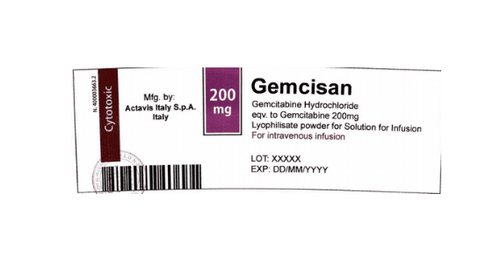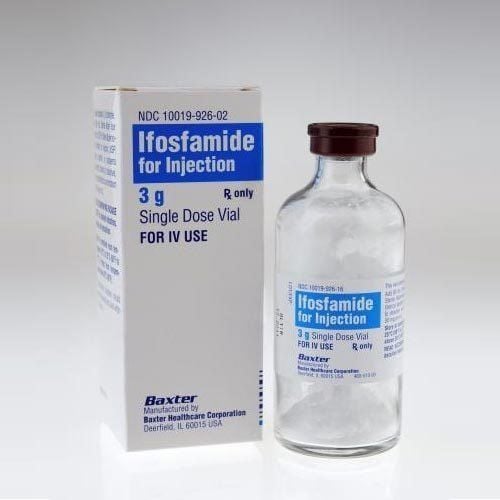This is an automatically translated article.
Bladder cancer in the early stages has no obvious signs, easy to confuse patients with other diseases. Therefore, most bladder cancer patients are diagnosed at a late stage. Early recognition of the disease at an early stage is extremely important. Please read the article below to have complete information to help patients recognize bladder cancer in the early stages.
1. What is the pathology of bladder cancer?
Bladder cancer is the second most common malignancy after prostate cancer of the genitourinary system (including kidney, ureter, bladder, prostate, urethra, ...) and 4th in common cancers such as prostate cancer, lung cancer, and colon cancer. The incidence in men is three times higher than in women.
Risk factors for bladder cancer include: Older age, family history of bladder cancer, exposure to certain chemicals such as arsenic, aromatic amines used in manufacturing chemical dyes and pharmaceuticals, smokers, patients with chronic bladder infections, diabetes, obesity,...
Early-stage bladder cancer is non-invasive bladder cancer bladder muscle. This is the stage when cancer cells are just growing, still located inside the lining of the bladder. The disease has not yet grown through the mucosa to enter the muscle layer deeper than the bladder. This stage also has not spread to nearby lymph nodes or to distant parts of the body, such as the bones, lungs, or liver.
2. Early stage cancer classification
Doctors diagnose the early stages of bladder cancer by looking at how far the tumor has grown into the layers of the bladder. The extent of bladder cancer growth was assessed using the TNM grading system. In the early stages, cancer cells develop into tumors with 3 levels of T (Tumor - Primary Tumor) including:
Ta: Non-invasive papillary epithelial bladder cancer. TIS: Is epithelial bladder cancer in situ. T1: Bladder cancer that has invaded the submucosa. In the above cases, bladder cancer is located only in the lining and submucosa of the bladder. It has not penetrated deeper into the bladder wall.
3. Are early signs of bladder cancer easy to recognize?
Signs of early-stage bladder cancer may not be as obvious or similar to symptoms caused by other conditions. Patients should immediately visit a medical facility when they have the following signs:
Blood in urine (observation of rusty or bright red urine). Urinate many times. Pain when urinating. Difficult urination. Painful urination, signs of urinary obstruction. Lower back pain.
4. Early stage cancer treatment
Diagnosing and staging bladder cancer helps your doctor decide on the right treatment. Treatments for early-stage cancer depend on the size and extent of the tumor in the bladder. As well as a number of influencing factors such as the patient's age, gender, underlying medical conditions, and the patient's overall health status.
Some treatments for bladder cancer diagnosed at an early stage are as follows:
Surgery:
Early-stage bladder cancer is usually treated with laparoscopic or surgical removal of the tumor. open surgery. Surgery is performed to help determine the extent of cancer spread and remove the tumor, and to determine on the pathological results of tumor cells relocating to the mucosal layer that has not invaded into the tumor. bladder muscle. Early-stage cancers do not need to be treated with cystectomy. Partial or total bladder resection is indicated only at a later stage. Chemotherapy
Chemotherapy can be used as adjuvant treatment after surgery for early-stage bladder cancer. This therapy helps kill any cancer cells that are left after surgery and prevents bladder cancer from coming back. During chemotherapy, chemotherapy drugs are injected into the bladder through a urinary catheter, also known as an intravesical chemical pump. Chemotherapy for bladder cancer in the early stages should be done as soon as possible after surgery, most effective 2 hours after surgery. This treatment is done once a week and lasts for 6 weeks. Immunotherapy (BCG)
Immunotherapy is the use of the body's own immune system to attack cancer cells. This method uses a vaccine called Bacillus Calmette - Guérin (BCG) to stimulate the immune system's response to fight bladder cancer. This therapy should be done alone and for at least 6 weeks, repeated every 3 to 6 months. Some common side effects after using this therapy include bladder irritation, pain or burning when urinating, low-grade fever and chills.
5. Prognosis of bladder cancer treatment
The majority of bladder cancer cases are diagnosed at an early stage and are highly treatable, completely curable. Bladder cancer in the early stages is highly treatable. However, the patient needs to be closely monitored to prevent the disease from returning. In cases where the disease recurs, it is rarely invasive or life-threatening. To minimize the risk of recurrence of early-stage bladder cancer after successful treatment, patients need to be periodically re-examined and closely monitored by cystoscopy. In addition, patients need to avoid contact with cancer-causing agents, live in moderation, do not smoke, ...
6. How to prevent bladder cancer?
Don't smoke
Tobacco is the main cause of many cancers and bladder cancer is also one of them, because cigarette smoke contains a lot of carcinogens that can concentrate in the organs in the body to cause disease. Therefore, not smoking is an effective measure to prevent cancer in particular and other diseases.
Limit exposure to hazardous chemicals and use safe water
Safety guidelines should be followed in the workplace when working with chemicals regularly to avoid exposure. In case of using a new water source, tests should be done to check the amount of arsenic (a common carcinogen) in the water to avoid too much contamination of this substance in the body.
Drink plenty of water
Drinking enough water a day (about two liters) can reduce the risk of bladder cancer by 25%, because water has the effect of eliminating any cancer-causing agents from the bladder. bladder through urine before these substances penetrate and grow in the body.
Improve a reasonable diet
Bladder cancer in the early stages of what diet is a matter of concern for many people. Accordingly, eating a lot of cruciferous vegetables such as broccoli, cabbage can reduce the risk of bladder cancer in men.
Although as we all know eating lots of fresh vegetables and fruits is good for health, only broccoli and cabbage seem to have an effect on reducing the risk of bladder cancer.
Periodic health checkup
This is a really important job to detect health problems early. In addition, if you notice that your body has abnormal signs such as blood in the urine when urinating, you should go to the doctor immediately to detect bladder cancer early and treat it promptly.
Above are some basic information to answer questions about bladder cancer with obvious signs. Early recognition of signs at an early stage helps patients to be diagnosed and treated early, thus limiting the risk of severe disease and affecting the patient's quality of life.
Please dial HOTLINE for more information or register for an appointment HERE. Download MyVinmec app to make appointments faster and to manage your bookings easily.













